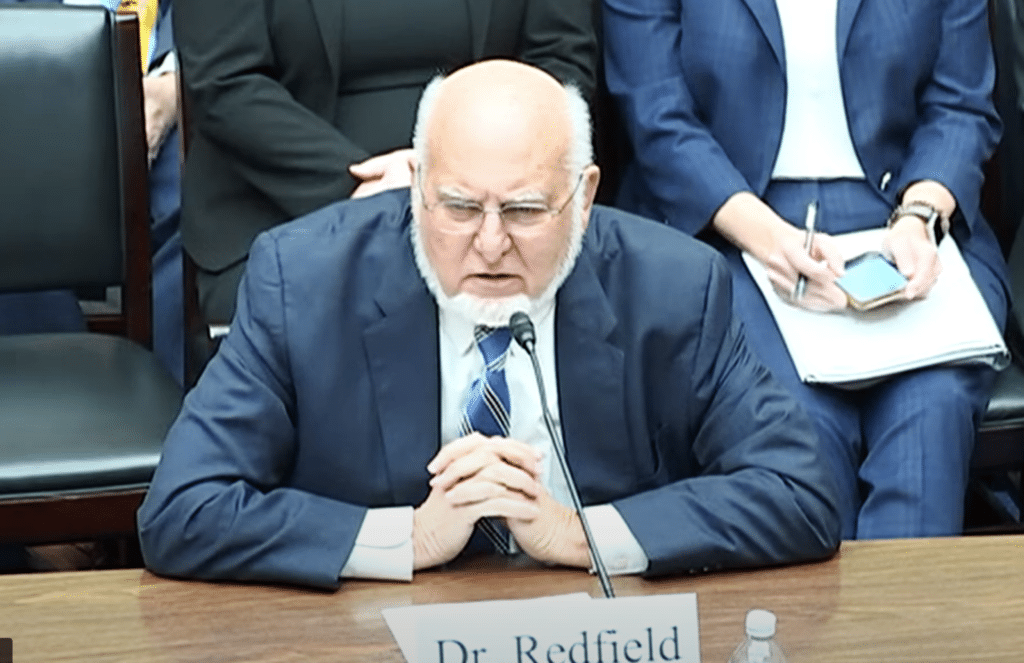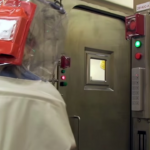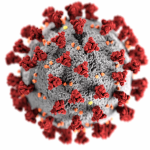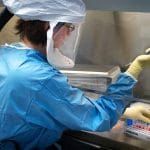A House subcommittee investigating COVID-19’s origins hears from a former CDC head and other prominent witnesses
By Matt Field | March 8, 2023
 Former CDC Director Robert Redfield testified on March 8 during a House subcommittee hearing about the origins of the coronavirus pandemic.
Former CDC Director Robert Redfield testified on March 8 during a House subcommittee hearing about the origins of the coronavirus pandemic.
The debate over how COVID-19 began, on the back burner for months now, is once again heating up. News broke last month that the Energy Department used “new evidence” to conclude with low confidence that the virus sprang from a lab in Wuhan, China, joining the FBI in making that assessment. On Wednesday, newly empowered Republicans on the House Select Subcommittee on the Coronavirus Pandemic led their first hearing on the origins of the pandemic.
At the hearing, former CDC Director Robert Redfield re-iterated his belief that a lab leak had sparked the pandemic, saying the COVID-19 virus emerged too capable of spreading among humans to be the result of a natural crossover from animals. The Trump administration appointee complained about being left out of high-level discussions among scientists and former officials like top White House advisor Anthony Fauci and National Institutes of Health Director Francis Collins as they weighed the so-called “lab leak” theory. Also testifying at the hearing were Jamie Metzl, a proponent of the lab-leak theory and a senior fellow at the Atlantic Council, and Nicholas Wade, a veteran science reporter who wrote a widely read and prominently cited piece espousing a laboratory origin for the virus in the Bulletin. The Democrats invited Paul G. Auwaerter, a Johns Hopkins University infectious disease specialist, who said in written testimony that there is “no consensus among scientists and intelligence experts about the origins of COVID-19,” while noting that many virologists believe a natural spillover of the virus from bats or an intermediate animal species to humans initiated the pandemic.
Several House members remain undecided between the two leading origins explanations and are open to further investigation. “The facts are, the evidence remains inconclusive,” the committee’s ranking Democratic member, Raul Ruiz of California, said. “Therefore we must allow our scientists and intelligence communities to gather evidence without politicization, extreme partisan rhetoric, or conspiratorial accusations that vilify our nation’s public health experts.” Republican Brad Wenstrup, the chair, said the origins question must be “investigated thoroughly, responsibly, and honestly.”
Wednesday’s subcommittee hearing is yet another sign that the highly politicized origins debate may not be fading from public prominence, even as the events that caused the first outbreak of the disease later named COVID-19 recede further into the past. The subcommittee is far from the first organization to take up the matter.
A previous investigation by the World Health Organization (WHO)—which concluded that a lab leak was extremely unlikely as the origin of the pandemic—was met with broad skepticism, in the Biden administration and elsewhere. That inquiry lent some credence to the seemingly remote possibility that seafood imports led the first cases in China. Due in part to opposition from the Chinese government to further investigation, the WHO has halted plans to build on its first report, Nature reported last month. “There is no phase two,” Maria Van Kerkhove, of the WHO, told the publication.
In the United States, analyses by US intelligence agencies ordered by President Joe Biden in 2021 have yielded a mixed bag of uncertain results, with four agencies judging that the pandemic arose from natural spillover, and two, the Energy Department and FBI, leaning the other way. Each agency described having only low—or in the case of the FBI moderate confidence—in their judgments. Some House members have pushed to have the Energy Department’s report declassified.
Even as some members see an opportunity for a dispassionate investigation, others appear to have made up their minds on an issue that has been used as a political football from the beginning of the pandemic. Rep. Jim Jordan, a close ally of former President Donald Trump, cut off even Republican witnesses, as he quickly worked to build his case against the Wuhan Institute of Virology, Fauci, and several scientists, whom Jordan portrayed as working to stave off an investigation into the lab. “US tax dollars went to a lab in China, a lab that was not up to code, a lab that was doing gain-of-function research, and that’s where this thing most definitely came from,” he exclaimed.
Together, we make the world safer.
The Bulletin elevates expert voices above the noise. But as an independent nonprofit organization, our operations depend on the support of readers like you. Help us continue to deliver quality journalism that holds leaders accountable. Your support of our work at any level is important. In return, we promise our coverage will be understandable, influential, vigilant, solution-oriented, and fair-minded. Together we can make a difference.
Keywords: COVID-19
Topics: Biosecurity














